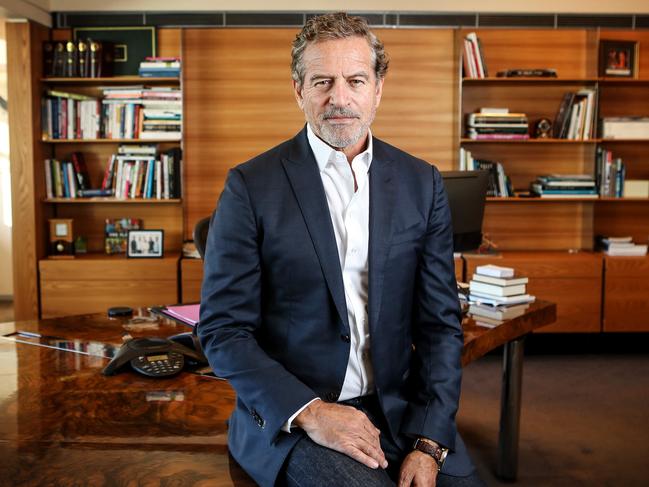Mark Bouris: Tax-offset payments might not be the right answer
The government of the day always speaks as if it knows exactly what it’s doing but the fact is they don’t always know, for sure, what effects their policies will have, like the tax cuts which began to filter to Aussie consumers on July 1, Mark Bouris writes.
Opinion
Don't miss out on the headlines from Opinion. Followed categories will be added to My News.
One of the biggest myths surrounding Australia’s economy is that our politicians always know what they’re doing, and that there is always a lever to pull that will step in and save us from whatever danger we face.
That might help us all sleep at night, but it’s simply not the case.
The government of the day always speaks as if it knows exactly what it’s doing, as if its hands are firmly on those “levers” of the economy, but the fact is they don’t always know, for sure, what effects their policies will have.
There is no clearer example of this than the government’s tax cuts — or tax-offset payments — which began to filter through to Aussie consumers on July 1.

It was the right idea at the right time, the theory being that this cash bonanza would have people running into the streets, fists full of dollars, to pump up our economy with their excited spending.
MORE FROM MARK BOURIS:
‘Power to get the best interest rate deal is in your hands’
‘Negative gearing is a valuable toy that we know works’
But the reality has been very different. Can you smell a recovery in the air? Do retailers and small businesses suddenly have a spring in their step and a bounce on their balance sheets? Sadly not.
And that’s because a climate of fear has seeped into people’s minds and made them wary of spending their tax windfall, despite the fact that it’s what the country needs them to do. Perhaps the tax refunds should have come with instructions attached.
This week we heard that Westpac’s consumer-sentiment survey found that the majority of people plan to save most of their refund, rather than spend it.
Westpac’s economists reckon about 30 per cent of households will receive a “meaningful” rebate, and if they all embraced the fact that what their fellow Australians, and their local small-business owner in particular, needs them to do is to treat that money as a gift, and spend it on themselves or their families.

Yes, buying that new TV, or that outdoor furniture, or even that new lawnmower won’t just make you happy, it will help our small and medium businesses, which are the engine of this country and its economy.
Fortunately, some 29 per cent of people who’ve received their tax gift so far do plan to spend it all, but more than half of those surveyed said they would save the full amount.
The consumer-sentiment survey also found that people were less likely than usual to think now was a good time to buy a major household item.
This is a disaster for retail and for small businesses that had been counting on this boost to lift them out of the doldrums and give them growth. And when they grow, they hire more people, the pump gets primed and our economy takes off again.
Fortunately, only 16 per cent of Australians have actually received their tax money so far, so there’s still time for the rest of those people to think differently and take a more robust approach.
So, to paraphrase yet another politician, ask not what you can buy for yourself, ask what you can buy for your country.
* Mark Bouris is chairman of the SME Association of Australia
* Mark Bouris, chairman of Yellow Brick Road, is one of Australia’s most successful entrepreneurs. He writes a column for The Sunday Telegraph, sharing his extensive business skills.
